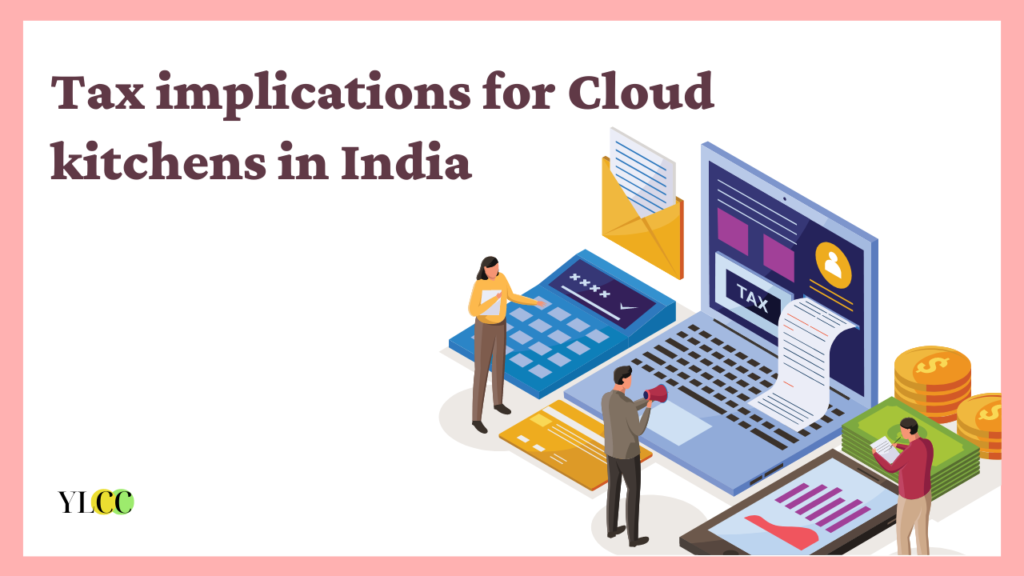
Have you ever ordered food online and wondered where it was prepared? Chances are, it was made in a cloud kitchen – the phantom chef of the online food delivery world. With no physical dining space, these kitchens operate like ghosts in the night, whipping up delicious meals and sending them off to hungry customers. But as the cloud kitchen industry continues to expand in India, it’s crucial for operators to keep their feet on the ground when it comes to taxes. From GST to income tax, understanding the tax implications for cloud kitchens is essential to running a successful business. So let’s dive in and demystify the tax world of cloud kitchens!
Goods and Services Tax (GST)
One of the most significant tax implications for cloud kitchens is related to the Goods and Services Tax (GST). The GST council has declared that cloud kitchens are just like traditional restaurants, which means they’re subject to the same tax laws.
Now, if you’re running a cloud kitchen, you have two options when it comes to GST. Option one: charge GST at a 5% rate without taking any input tax credit (ITC) under the GST composition scheme. This means you won’t be able to claim ITC on the tax paid on your input supplies. Option two: charge GST at an 18% rate if you want to claim input tax credit. This will allow you to offset the tax paid on your input supplies against the tax collected on your output supplies.
So, what’s the best choice for your cloud kitchen? It’s crucial to carefully evaluate your tax situation based on various factors, such as the size of your business, the amount of input tax credit available, and the overall profitability of your business. Don’t worry; with a little planning and attention to detail, you’ll be able to navigate the world of cloud kitchen taxes like a pro!

Income Tax
First things first, any income earned by a cloud kitchen, whether through online orders or in-person sales, is taxable under the Income Tax Act. So, if your cloud kitchen is bringing in the dough, you gotta pay the taxman his share.
But hey, it’s not all bad news! Cloud kitchens can claim deductions on expenses related to their business operations, such as rent, utilities, salaries, and marketing expenses. So, if you’re spending money on things like rent and marketing, you can reduce your taxable income and save some bucks.
Now, here’s the catch. To claim these deductions, it is crucial to maintain accurate records of all income and expenses. Trust me, you don’t want to be caught unprepared when it’s time to file your tax returns. So, make sure to keep all your receipts and invoices in order.
TDS (Tax Deducted at Source) and TCS (Tax Collected at Source)
When it comes to tax matters for cloud kitchens in India, TDS is an acronym that operators should keep in mind. TDS, or Tax Deducted at Source, is a system that helps the government collect tax right at the source of income. So, if your cloud kitchen makes payments to contractors, employees or service providers, TDS comes into play.
The TDS rate for contractors and service providers is 2% of the payment made, which must be deducted by the cloud kitchen before the payment is made. This means that if you hire a contractor to provide a service for your cloud kitchen, you must deduct 2% of the payment before making the payment to the contractor. It’s like a little tax ninja jumping in and grabbing a percentage of the payment before it reaches the contractor.
Similarly, if you pay an employee, the TDS rate will depend on the employee’s income tax bracket. This means that if your cloud kitchen hires staff, you will have to deduct TDS at the applicable income tax rate. But hey, at least you can have fun imagining a tiny taxman taking a percentage of the salary before it reaches the employee.
And then there’s TCS, or Tax Collected at Source, which is when the cloud kitchen collects a percentage of the payment received from customers and remits it as tax to the government. It’s like the cloud kitchen is collecting the tax before the customer gets their delicious food.
Just like a chef needs to keep a close eye on their ingredients, cloud kitchens must keep an eye on their TDS and TCS obligations to ensure they are following the right recipe for success. So, let’s get cooking, cloud kitchen style!
Conclusion
Well, well, well, we’ve reached the end of our tax journey for cloud kitchens in India! It’s safe to say that operating a cloud kitchen comes with its fair share of tax obligations, from GST and income tax to TDS and TCS. But fear not, my dear cloud kitchen operators, by understanding these tax implications, you can ensure that your business is operating smoothly and legally.
So remember, register for GST, keep accurate records of your income and expenses, deduct TDS on payments made to contractors and service providers, pay professional tax, and stay compliant. With these tips in mind, you’ll be able to cook up a storm in your cloud kitchen without any tax-related troubles. Happy cooking!
This article has been written by Team YLCC. For any other queries, reach out to us at: queries.ylcc@gmail.com






